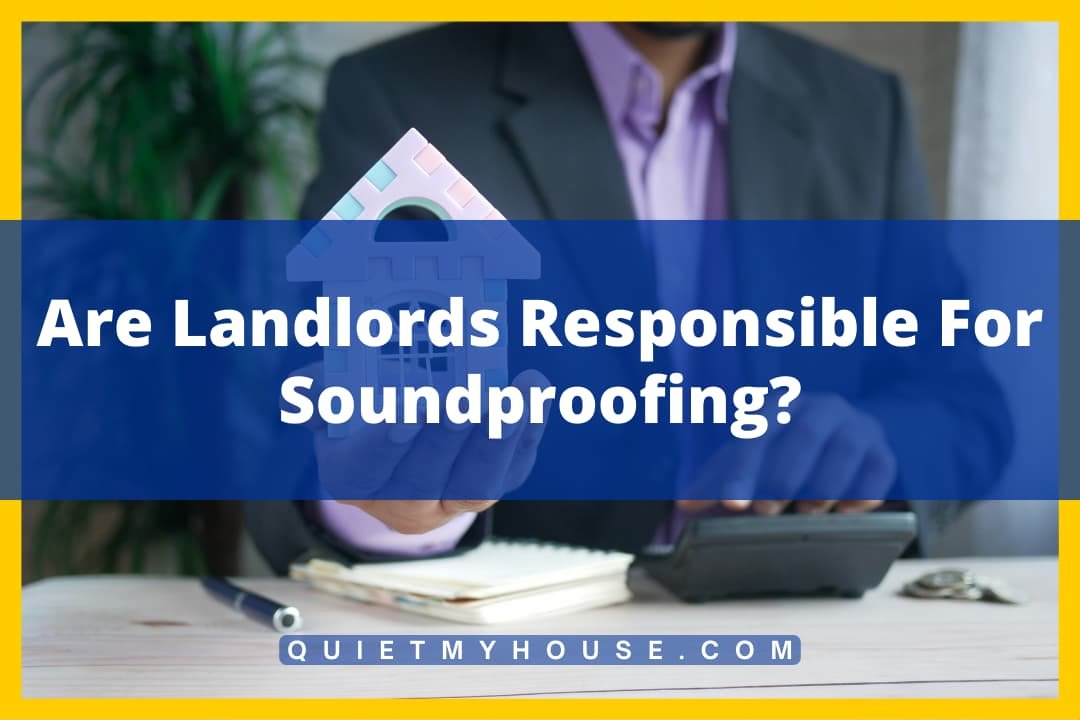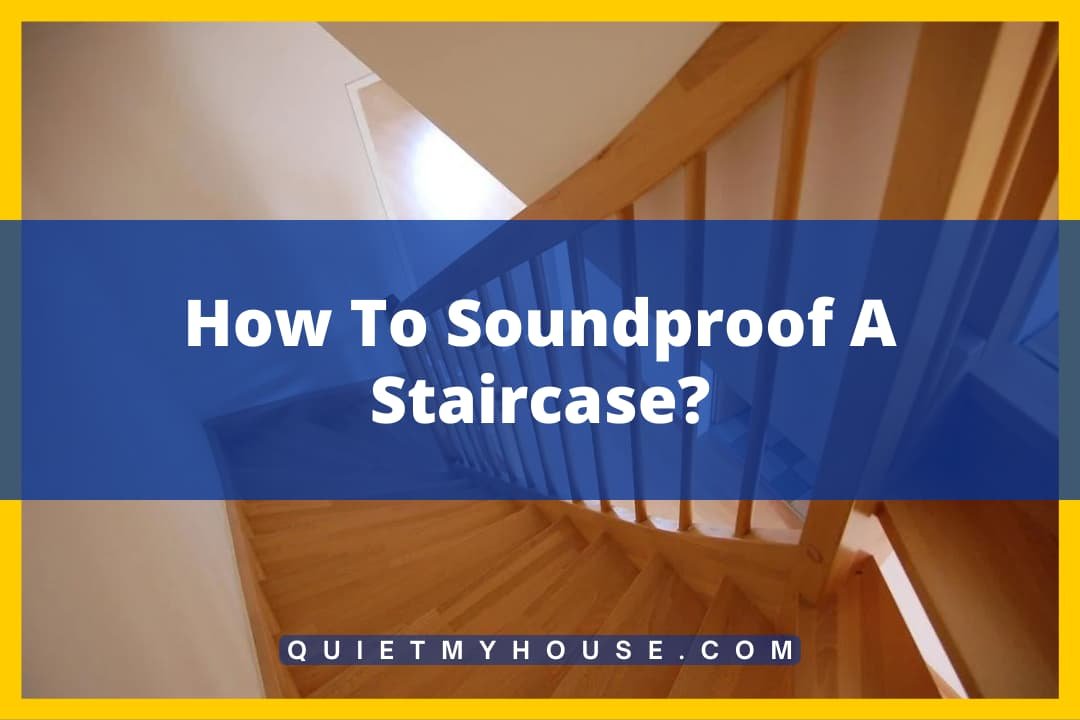Whether you’re practicing your musical instruments, recording a song, or you just want to test out your new speakers and listen to your favorite album, you probably want to be courteous to your neighbors so they don’t have to deal with the loud music.
To keep the music from bothering neighbors, the best thing to do is to soundproof the room where the music is coming from. Soundproofing methods include using soundproof foam pads, blankets, or curtains, and installing weatherstrips on the door and windows.
To learn more about these soundproofing methods and some alternatives, continue reading.
When to Stop Playing Loud Music
If you’re reading this, you’re here because you don’t want to disturb your neighbors with your music. Making sure that your music isn’t too loud that it bothers your neighbors is a general courtesy. There are many instances in which you’ll want to keep your music from becoming a noise nuisance to those who didn’t choose to listen to it.
Additionally, there are some living situations where you have to keep your music at an even lower volume. For example, if you live in an apartment complex with thin walls, your speakers can sound louder to your neighbors than they would if you lived in a stand-alone home. This is because sound can more easily travel through the walls, windows, doors, air vents, floors, and ceilings.
Whether or not you live in an apartment complex, you should avoid playing your music loudly late at night, especially if you live in an apartment. Your music is going to sound louder to others if you have thinner walls, which can be a problem for neighbors while they’re trying to sleep for work.
Keep in mind that the decibels of music or sound lower the further away you are, so depending on how far away your neighbors are, your music may not be as much of a disturbance as you may think, so you can use fewer soundproofing methods.
This is why noise disturbances can be more of a concern if you live in an apartment. Either way, you should avoid playing music, in general, past 11 pm.
After this time, if your neighbors hear your music and find it a nuisance, they may call authorities, although you can’t control whether or not they put in a noise complaint to your landlord before 11 pm. It’s also a general courtesy to turn off your loud music late into the night, and it’s even better if you do so before 10 pm.
How to Soundproof Your Walls

One of the most effective methods to keep the music from traveling through your walls and causing a noise disturbance for your neighbors is by soundproofing your walls. You can do this by using acoustic foam panels.
This is often the most common way of soundproofing your walls, as it is easy and inexpensive, and it’s great for apartments because mounting them won’t damage your walls.
You also only have to do this in the room where you’ll be playing music. This may not be the best option, however, if you have speakers all around your apartment that you want to play loud music from.
The foam panels are lightweight squares of foam that absorb the sound of various frequencies, including the high sound frequency of a violin. You can also attach these to your ceiling to help prevent sound from traveling through the ceiling to your upstairs neighbors.
To mount acoustic foam panels to your walls, you can use command strips or Gorilla mounting tape if they don’t already have an adhesive backing. Both of these will prevent you from causing damage to your walls, which is especially useful for rental homes or apartments.
Start in one corner of the wall, then add squares across and down the wall until the wall is covered. If your foam panels have a textured surface, you can arrange them in a checkerboard-like pattern, with alternating vertical and horizontal lines.
Soundproofing Your Door and Windows
Another method of soundproofing that can help prevent sound from traveling from inside your home or apartment to the outside is installing weatherstrips onto the gaps of your door and windows. This is a strip made of plastic, steel, or a foam adhesive strip that you can attach to the edges of your door and the edges of your windows.
While these are meant to keep cold air from coming through the door or window gaps, they can also help prevent sound from traveling through the door and windows.
Weatherstripping, however, may not be enough to keep sound from traveling through your door and windows if you live in an apartment complex. You can also make use of soundproofing curtains, which can be hung like normal window curtains but they help prevent sound from traveling through the glass of your window. Then, you can hang a soundproofing blanket over your apartment or bedroom door, and it will act like a curtain and a barrier for sound.
These blankets help to absorb excessive ambiance, preventing that ambiance from traveling through your door and disturbing neighbors. These are best if you have a door that opens out, as you can hang it over the door on the inside of your apartment.
If you’re mostly concerned about sound traveling through your door and your windows to the outside of your apartment or house, this may do just enough to keep those noise complaints from being filed.
Muffling Vibration from Speakers

To better prevent your speaker’s vibrations from traveling from your apartment floor to your neighbor’s apartments on the same floor or to keep it from traveling through the floor to your downstairs neighbors, you can set your speakers on insulating vibration pads.
This is probably the easiest and most inexpensive soundproofing method. These pads absorb sound and prevent vibrations from traveling past them. You should also make sure that your speakers are level, which can help prevent them from shaking and causing even more rattling noise that could disturb your neighbors.
Installing Soundboard
The soundproofing method of installing a soundboard is probably one of the best ways to prevent sound from traveling through your walls, but it takes some construction skills to install and may keep you from getting your security deposit back if you live in a rental. Because of this, this option is better for homeowners who have permanent music studios or homes where music is always playing loudly.
Soundboards are large panels of laminate made of acoustic plasterboard, vinyl, and foam that look like sheets of drywall. You can cut these to the size of sections of your walls and then screw the edges into the drywall of your home, and can even be installed onto your ceiling.
Some Things to Keep in Mind
You should keep in mind that you don’t have to cover every square inch of your walls and ceiling to prevent sound from traveling through the walls and creating a disturbance. You only really need to lower the sound of music or instruments to neighbors by 10 decibels, as this can sound half as loud as it normally would be without the soundproofing.
As long as you’re usually pretty reasonable with the amount of sound you produce with your music speakers, you can play your music a bit louder than you normally would to avoid noise disturbances without a problem, so long as you’ve used at least one or two of the soundproofing methods.
If you want to play your music or your electric guitar to earsplitting volumes, keep in mind that even the most extensive soundproofing won’t make your home 100% soundproof. However, it may keep it from being a loud nuisance to your neighbors,




